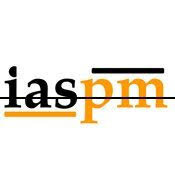Music and Racism in Europe 20.-22.10.2021
MUSIC AND RACISM IN EUROPE
Call for papers
Online Symposium, 20—22 October 2021
UPDATE (3 SEPTEMBER 2021): Visit symposium website for more information here
Race is among the most significant social categories that informs and organises understandings of music. Although there is an abundance of music research that deals with BIPOC minorities and, at least implicitly, also with race, fewer studies explicitly address how processes of for example racialisation, essentialisation, appropriation and exclusion in music and music research can effectively be categorised as racist. However, recently there has been an increasing interest in the issue of racism in the field of music and music scholarship and this international online symposium seeks to bring together researchers and practitioners across disciplines and genres to discuss music and racism particularly as it relates to Europe.
In emphasising racism, rather than the notion of race, we want to encourage scholars to address the real-world consequences of the articulations of race in music and music scholarship. As we do not wish to merely contribute to narratives of victimization, we seek primarily research that identifies institutional and structural forms of oppression and discrimination. Furthermore, acknowledging scholarship as an active part of civil society, we also seek real-world approaches to dismantling racist structures. As such, the
symposium will also include a panel discussion organised in collaboration with Music Finland with participants that represent different aspects of the music industries. The panel will be moderated by Professor Anthony Kwame Harrison.
We welcome papers from scholars in any field of research and we also invite presentations in other than traditional academic paper form by practitioners in any style of music who want to contribute to this discussion. Possible topics include, but are not limited to the following:
Industry structures that exclude and discriminate BIPOC people, such as mechanisms of chart compilation or myths of neutrality and meritocracy
White normativity, whiteness as a power and white Eurocentric epistemologies in discourses around music
Different forms of denial and exceptionalist discourses around racism in music
The conflation of issues of race with migration in relation to music
Critiques of white rock centrism in discourses (scholarly or otherwise) of popular music history
Challenges and successes in antiracist strategies and activism in music
Challenges involving the (in)ability to collect data about race and ethnicity
Critiques of multiculturalism and colorblindness in music diversity work
Appropriation of BIPOC music cultures
Discourses and representations of exoticism
Criminalizing discourses and representations of BIPOC music and music cultures
Keynote speakers
Kira Thurman, University of Michigan
Photo: Annette Hornischer
Thurman is an assistant professor of Germanic Languages and Literatures and History at the University of Michigan. A classically-trained pianist who grew up in Vienna, Thurman earned her PhD in history from the University of Rochester with a minor field in musicology from the Eastman School of Music. Her research, which has appeared in German Studies Review, Journal of the American Musicological Society (JAMS), Opera Quarterly, and Journal of World History, focuses on two topics that occasionally converge: the relationship between music and German national identity, and Central Europe's historical and contemporary relationship with the Black diaspora. Her book Singing Like Germans: Black Musicians in the Land of Bach, Beethoven, and Brahms will be puslished in October 2021 with Cornell University Press.
Luis Manuel Garcia-Mispireta, University of Birmingham
Luis Manuel Garcia-Mispireta is a Lecturer in Ethnomusicology and Popular Music Studies at the University of Birmingham, with previous appointments at the Max Planck Institute for Human Development (Berlin) and the University of Groningen (NL). His research focuses on urban electronic dance music scenes, with a particular focus on affect, intimacy, stranger-sociability, embodiment, sexuality, creative industries and musical migration. He has written about “techno tourism” and other forms of musical mobility in Berlin, and he is a member of Berlin’s queer intersectional rave collective, Room4Resistance. His forthcoming book, entitled Together Somehow: Music, Affect, and Intimacy on the Dancefloor (Duke UP), draws upon earlier ethnographic research in Paris, Berlin, and Chicago.
Submissions
Please send an abstract of max 250 words without references and a biography of 50 word plus contact details all in same word or pdf file to kim.ramstedt@gmail.com.
Deadline for abstract submissions 13 June 2021.
Registration and fees
Registration will be open from August until September 2021. Details about payment methods will be sent out to registered participants.
Fee for waged participants 35 EUR
Fee for unwaged participants 15 EUR
Organisers
The symposium is organised by Research Association Suoni and the Kone Foundation funded research project ”Music researchers in society: Advancing social justice through activist music research” in collaboration with University of Helsinki (Musicology), CEMFOR — Centre for Multidisciplinary Studies on Racism at Uppsala University, IASPM-Norden (International Association for the Study of Popular Music and Music Finland.
Symposium coordinators: Kim Ramstedt (Suoni) and Jasmine Kelekay (CEMFOR)
Contact: kim.ramstedt[at]gmail.com








